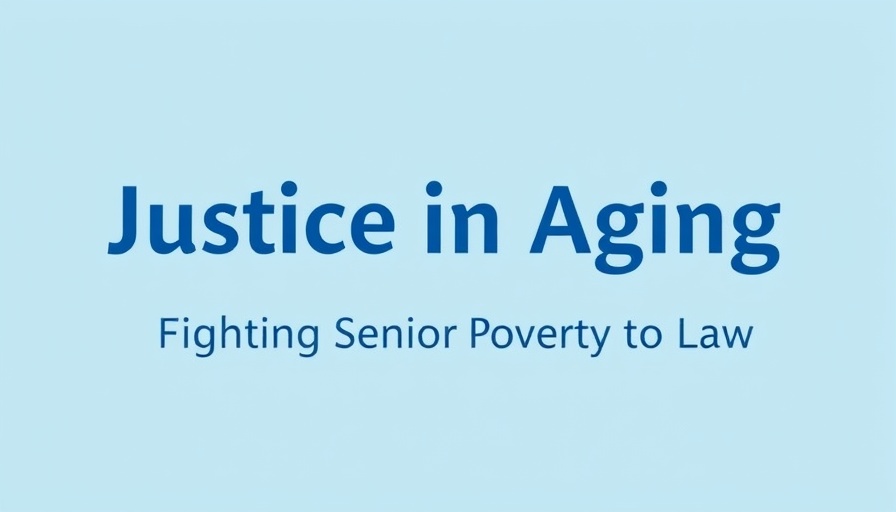
Understanding the Impacts of Medicaid and SNAP Cuts for Seniors
This week, the Congressional Budget Office (CBO) unveiled a sobering cost estimate for the recently passed Budget Reconciliation Act (H.R. 1), confirming that the nation will see its most drastic cuts to Medicaid and SNAP (Supplemental Nutrition Assistance Program) in history. A staggering 10 million individuals are anticipated to lose health coverage, disproportionately affecting older adults and individuals with disabilities. In addition, the expiration of enhanced premium tax credits under the Affordable Care Act (ACA) puts an additional 5 million people at risk, with older adults facing soaring costs for health insurance premiums.
The Consequences of Reduced Coverage
The CBO report underscores the grim reality of these cuts, which may lead to a health security crisis for millions of older Americans. As costs rise and coverage shrinks, the healthcare landscape becomes fraught with uncertainty, primarily for vulnerable populations. Fortunately, advocacy efforts have prompted Congress to modify some policies, ensuring that the health coverage of an estimated two million individuals remains intact.
Executive Order Threatens the Rights of the Homeless
A new Executive Order from the Trump Administration raises significant concerns as it promotes involuntary institutionalization for individuals experiencing homelessness, particularly those with mental health conditions. The directive, which instructs the Attorney General to challenge existing legal precedents concerning civil commitment, also seeks to redefine how HUD allocates funding regarding localities that penalize homelessness. Such moves signal a distressing shift in focus, away from proven strategies that prioritize permanent housing.
The Evidence-Based Value of the "Housing First" Approach
The "Housing First" model, embraced by many programs for its efficacy in addressing homelessness, emphasizes access to stable housing accompanied by supportive services. This model is particularly crucial for older adults, who represent the fastest growing demographic among the homeless population. Yet the new Executive Order refrains from addressing systemic issues like the lack of affordable housing and comprehensive community services, potentially exacerbating the homelessness crisis particularly for seniors.
Disenrollment Risks for Dual Enrollees
Meanwhile, the Centers for Medicare and Medicaid Services (CMS) have announced steps to disenroll individuals appearing to be improperly enrolled in multiple Medicaid plans or both Medicaid and ACA plans. This move affects about 2.8 million Americans, and the recent reconciliation bill provides new authority for CMS to compile lists and mandate corrective measures without procedural protections for the affected individuals. The absence of notice or safeguards raises considerable concerns about the potential for wrongful disenrollment, which could lead to further instability for millions.
What Can Be Done?
For seniors, the implications of these recent developments are profound. With rising healthcare costs and the potential for loss of critical benefits, the situation demands ongoing advocacy and community engagement. Seniors and their families need to stay informed about policy changes, participate in rallies and advocacy groups, and share their stories to highlight the need for protective measures for vulnerable populations.
Building Awareness and Action
The cumulative impact of budget cuts, policy shifts towards homelessness, and potential healthcare disenrollment creates a collective call-to-action. Individuals can join efforts to safeguard vital health services by engaging with local advocacy organizations, reaching out to congressional representatives, and contributing to awareness campaigns that address these pressing issues impacting older adults.
Our seniors deserve a safety net that supports their health and well-being, not a system that undermines their dignity. As these challenging changes unfold, it is imperative for all voices to be heard, advocating for a future where older adults can access the care and support they rightfully deserve. To ensure your voice is counted, join your community in upcoming advocacy events and make your concerns known.
 Add Row
Add Row  Add
Add 




Write A Comment